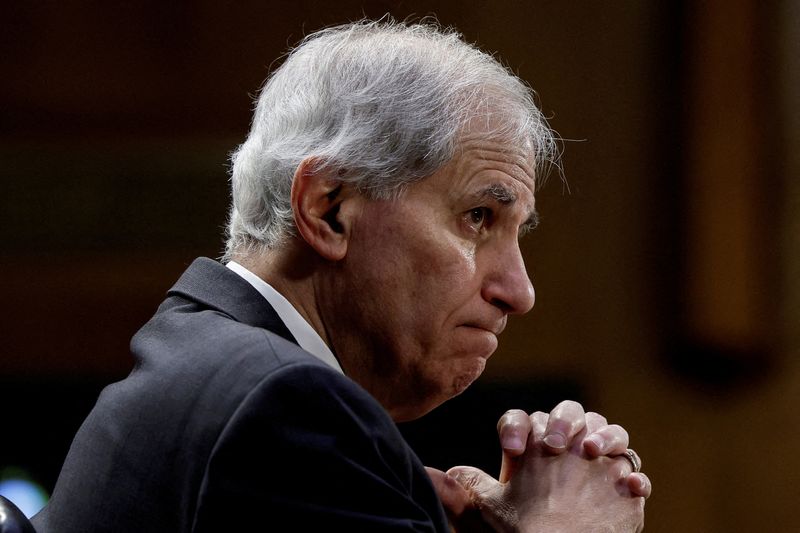By Douglas Gillison
(Reuters) - U.S. Federal Deposit Insurance Corporation Chair Martin Gruenberg on Thursday faced a second day of grilling before lawmakers on Capitol Hill as he battles to survive the fallout from a sexual harassment scandal at his agency.
Appearing alongside fellow top banking regulators from the Federal Reserve and U.S. Office of the Comptroller, Gruenberg reiterated his apologies to staff and acceptance of responsibility for leading an organization that had allowed serious misconduct to go unchecked for years.
In successive rounds of questioning, Gruenberg offered renewed expressions of contrition and commitment to making "fundamental structural change."
"We have to cut the good old boys network that is serving as an impediment to employees coming forward and reporting experiences of abusive treatment," Gruenberg said.
Gruenberg on Wednesday had faced hours of angry denunciations from lawmakers of both major parties during testimony before a House panel. Republicans have demanded Gruenberg's resignation but elicited little new information beyond what was already public knowledge.
An outside review published last week on workplace culture produced damning and lengthy reporting on a toxic workplace at the top banking regulator where it said staff for years had faced sexual harassment and even sexual assault, racial discrimination and bullying but justifiably feared retaliation for complaining at an organization resistant to change.
The review was prompted by a November expose in The Wall Street Journal which has likewise prompted investigations by the FDIC's inspector general and House lawmakers.

Gruenberg's ouster would immediately imperil much of President Joe Biden's agenda for the regulation of financial markets by deadlocking decision making on the FDIC board of directors.
FDIC is working jointly with the Federal Reserve and Office of the Comptroller of the Currency on several pending regulatory projects, most notably a sweeping effort to overhaul how banks measure risk that would significantly boost capital requirements for big banks.